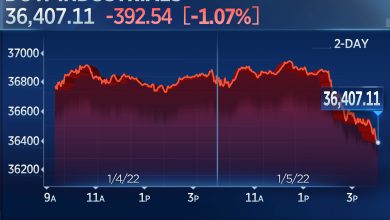Central Bank Digital Currencies, regulations will be trends to watch in ’22

In 2021, the crypto industry witnessed exponential growth as Bitcoin touched all-time highs, from $29,000 at the beginning of the year to reach $68,000 in October, up 130%.
In the second half of 2020, large institutional investors started purchasing Bitcoin, with business intelligence firm MicroStrategy announcing the purchase of Bitcoins worth $250 million. Many large institutional players and major global banks , such as Morgan Stanley, Goldman Sachs, JP Morgan and BlackRock, entered the space, offering exposure to crypto assets to their clients. The first Bitcoin ETF was approved by US regulators and listed on the New York Stock Exchange in October.
The rise in interest from institutional investors was primarily due to clearer regulatory frameworks for crypto assets across jurisdictions, which increased institutional-grade custody and infrastructure providers within the space, and a burgeoning decentralized finance (DeFi) ecosystem, which provides opportunities for institutional investors to generate alpha. 2021 saw significant growth as the total value locked (TVL) in the DeFi market cap crossed $250 billion in the first week of November.
Innovation in the blockchain industry is growing rapidly. Non-fungible tokens, or NFTs, have been the major use case of crypto that emerged in 2021 with millions of users gaining exposure to NFTs through digital art, sports and gaming. Some of the key crypto trends we expect to see in 2022 are…
Central Bank Digital Currencies (CBDCs)
China was the first to pilot its digital currency, the digital renminbi (or e-CNY), work for which had begun in December 2017. Subsequently, several countries have been exploring and announcing the idea of a national blockchain-based digital currency to improve cross-border trade. There is a huge possibility that 2022 could be the year where we see more countries launching their own CBDCs. As countries experiment with digital currencies, for example Singapore’s Project Ubin, Canada’s Project Jasper and the Digital Euro in the European region, it provides an opportunity for India to be a part of the global digital ecosystem and introduce its own CBDC. CBDCs could be instrumental in supporting the public policy objectives of the government for direct transfer of benefits due to the transparency that blockchain provides.
Structured crypto regulations across jurisdictions
Providing investment protection and promoting innovation is important from the government’s perspective as more people are investing in cryptocurrencies.
Stablecoin and DeFi will be the key focus areas within regulations. Over 18 different laws related to cryptocurrencies were introduced by the US government in the first half of 2021 alone.
As more countries introduce CBDCs and regulate the industry, a domino effect will lead to other countries integrating crypto as a part of their financial systems. Regulations are also important for blockchain startups to assess risk management strategies for safeguarding their consumers and the financial conduct of their operations. Regulatory uncertainty can kill innovation as governments worldwide ramp up efforts to embrace innovation.
India, too, is taking measures to regulate the crypto industry and provide more clarity to investors and crypto businesses. It is more likely to bring in a positive and progressive regulatory framework to promote the technology and support innovation.
integrating crypto with traditional finance/payments
One of the most prominent trends in the crypto industry in 2021 has been the adoption of crypto as a means of payment and traditional institutional investors offering crypto services to its clients. Reduced transaction costs, increased transaction speed and efficiency that blockchain provides are unparalleled, and companies, such as PayPal, MasterCard, Visa, Venmo and even Twitter, have started allowing customers to transact in Bitcoin and other cryptocurrencies. This is just the start of large financial institutions providing crypto offerings to clients and we anticipate more players to offer crypto exposure to clients in 2022.
We also anticipate that Coinbase’s successful IPO on NASDAQ will lead many crypto companies, ranging from exchanges to digital asset and payments companies, to launch their IPOs in 2022.
Whether it is financial services, gaming, art or any other industry, blockchain technology could be implemented almost everywhere.
Sumit Gupta is co-founder and chief executive officer of crypto unicorn CoinDCX.
Never miss a story! Stay connected and informed with Mint.
Download
our App Now!!
Source link





